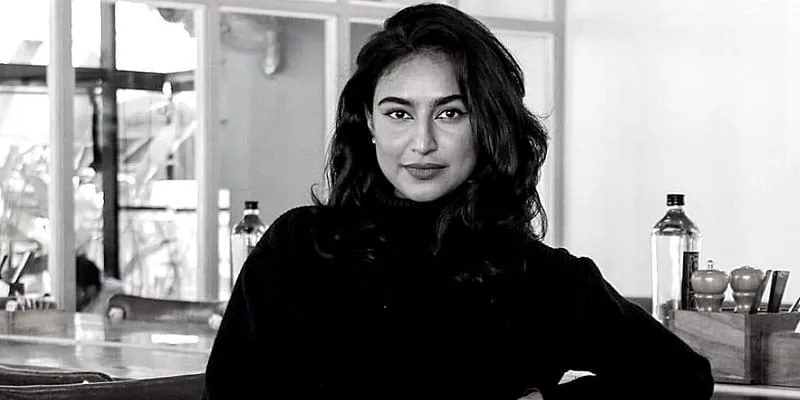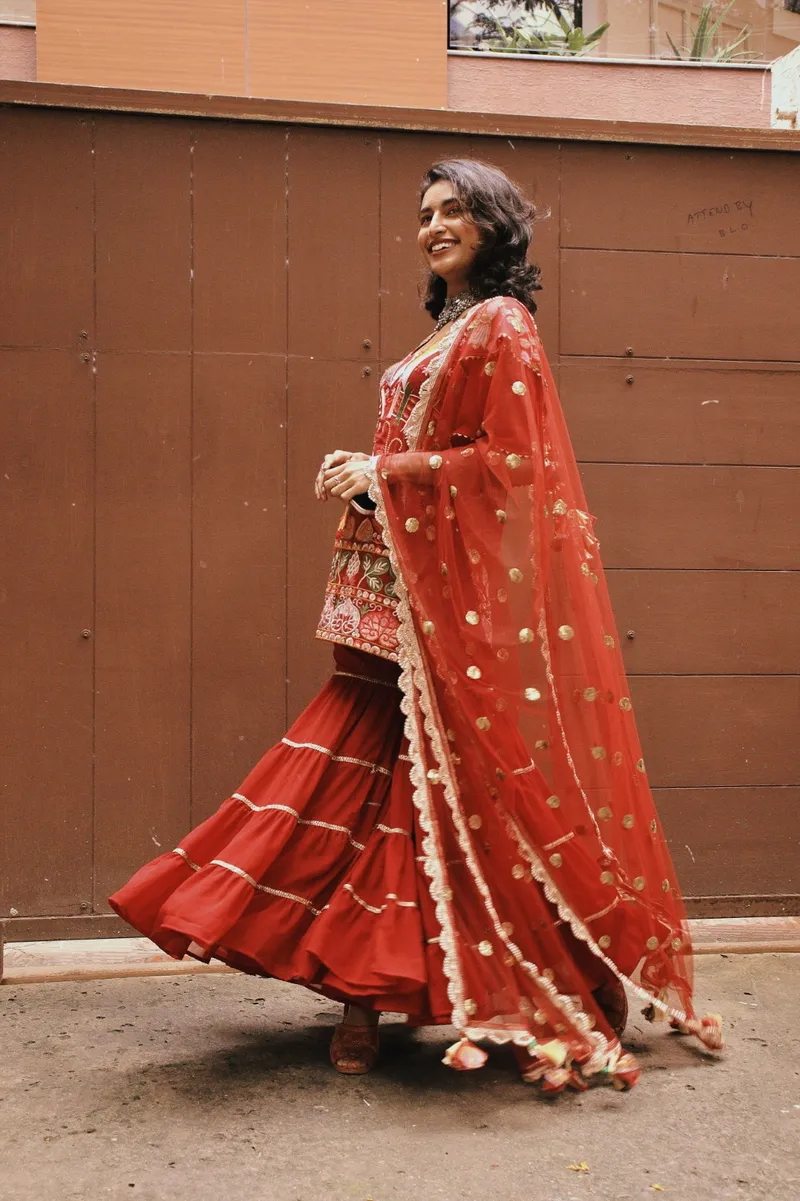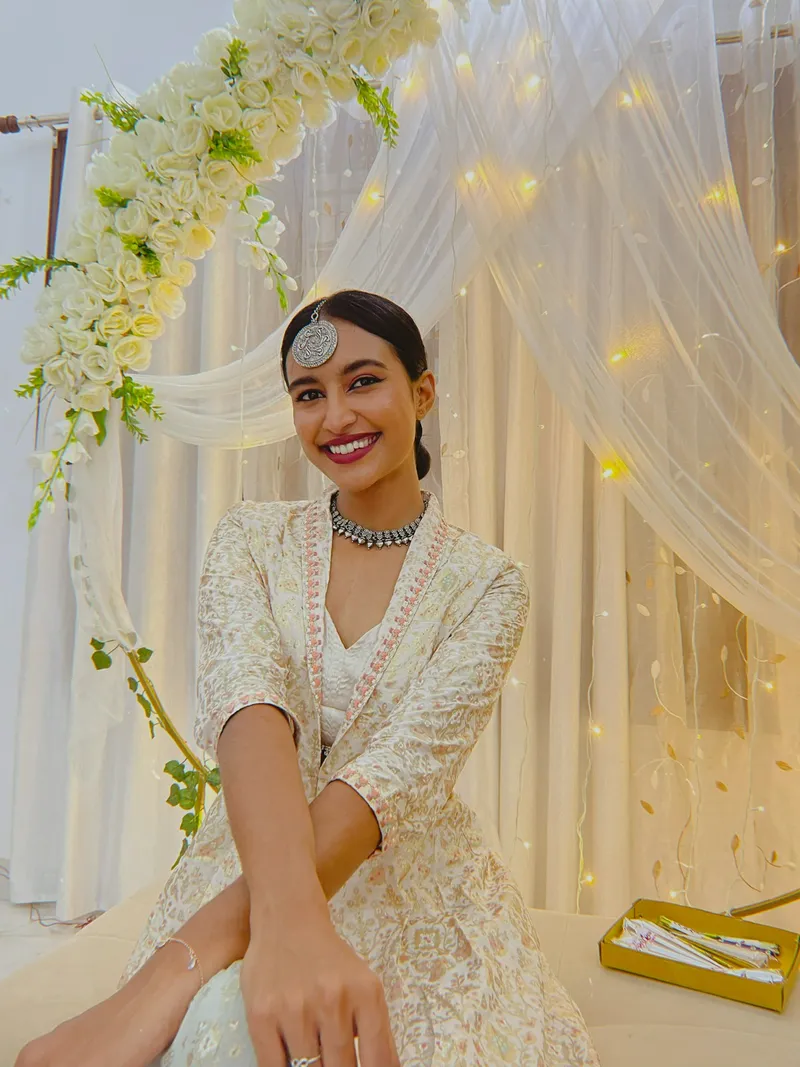We need to claim our space and everything that rightfully belongs to us: Content creator Rida Tharana
Social media influencer Rida Tharana creates women-centric content addressing issues like patriarchy, and discrimination based on colour, weight, and gender.
With close to 700,000 followers on Instagram, content creator and influencer Rida Tharana makes videos and reels on self-love, patriarchy, financial independence, and discrimination based on colour, weight, and gender.
Her content is hugely a reflection of her own journey—growing up in Polibetta, a remote village in Coorg, facing patriarchy and internalised misogyny, moving to a big city like Bengaluru, and finally, taking charge of her life.
In one of the reels, she speaks about marriage and how education and financial independence have given her the freedom of choice she always desired.
She points out that many women are forced to leave their education and seek permission from their husbands and families to continue studying after marriage. In the video, she tells women that “the only right time for marriage is when you want it.”
Tharana’s content resonates with women who challenge societal stereotypes and try to overcome barriers, which comprise nearly 80% of her audience. She is happy that her work is helping women take agency over their lives.

The content creator aims at empowering more women through her content
Growing up in a simple family, she remembers a childhood that comprised lanterns because of constant unscheduled power outages, watching shows and cartoons on old television sets, and using computers with floppy disks.
“We were far removed from the culture shift happening outside of Polibetta, but my sisters and I were happy,” she tells HerStory.
Tharana did not dream big as a child. The conversations at home centred on how a girl should look forward to marriage and kids and aspire to be a “perfect” wife and mother.
When she hit puberty, the patriarchy and internalised sexism kicked in with full effect. “My skin colour, marriage, and dowry became regular topics of conversation within the family. We were also expected to wear the hijab. It was as if all societal norms were imposed on us, all at once,” she recalls.
While education was not frowned upon, the eventuality was different.
“The notion instilled within us since childhood was that no matter how educated a woman gets, eventually, she is going to have a nice, cute wedding, and then that’s her life. It left me deeply troubled,” she says.
Slowly, she also saw how differently boys and girls were treated, which had not bothered her as a child. This, she says, was more influenced by her mother than her father, as she used to ask her to get married and respect her husband, alongside keeping a close check on what she wore.
All this left her feeling angry and confused. She began to question whether she was inferior because of her gender.
The rocky path to success

Rida Tharana
Tharana had always been an average student, but she knew the only way to get out of her hometown was to pursue biotechnology, for which she had to move to Bengaluru.
Her parents opposed it because they couldn’t afford her education fees. She decided to apply for a loan, which made things more difficult for her.
“Every day, my mother’s side of the family came and asked my parents about how they are letting me take a loan,” she recalls.
Around the same time, the guy she was dating decided to attend the same college, and his family asked her to drop out to avoid being together. “I was furious and disappointed as I did everything, and someone tells me, just because a man wants to go to the same college as me, I can’t go,” she tells HerStory.
Tharana was shattered when her father refused to send her to Bengaluru, but she did not lose hope. Seeing her sad and distraught, her uncle signed her loan papers and convinced her parents to let her go.
But Tharana’s challenges did not end after she moved out. With no family support, she struggled to pay for her mess fee. “I was struggling for food, and I didn’t have the option to call my family and ask for help,” she says.
She survived on bread, honey, and the food her friends shared with her. After depleting her savings, she started working as an events promoter for two months, post which she switched to hosting events and modelling as it paid more. “I didn’t know how to speak. I used to stutter a lot,” she adds.
She started by earning around Rs 1,000 a day, which went up to Rs 3,000 until the COVID-19 pandemic caused all events to stop.
To make ends meet, she worked as a financial advisor in a corporate but quit after six months as she did not fit in.
Angry and frustrated, she decided to channel her feelings by creating content on diverse issues faced by women—patriarchy and discrimination based on colour, weight, and gender—much of which came from her own experiences.
She saw many women resonating with her content. With persistent efforts, she reached 100,000 followers in January 2021, when she decided to take up content creation as a full-time job. In 2022, she garnered around 500,000 followers.
“Sometimes, I look back at the younger Rida who thought she would never achieve anything, and I look at myself now, and I am proud of what I have achieved. Though nothing comes easy, achieving your dreams is not impossible,” she says.
The flip side of content creation

Rida Tharana has garnered around 700k followers on Instagram
As a content creator, Tharana has to deal with several hateful comments and unsolicited messages from trollers.
“If a woman creates content, she is getting trolled anyway. If you do not show enough skin, you are insecure about your body. If you show too much skin, that is also bad. If you are an opinionated woman, you are ordered to remain in the kitchen. What people like are slow-motion videos, where you look pretty,” she says.
Tharana points out that even stray comments can take a toll on the mental health of a content creator. She believes therapy has helped her cope better.
As a south Indian, Tharana is often asked to speak in Hindi. While she recognises the talent of regional creators, she finds the ask quite unfair.
The way ahead
After garnering a huge fan base on Instagram and YouTube, Tharana plans to start a podcast. She is also figuring out how to monetise more content.
But primarily, her goal is to inspire and empower women through her content while advocating for the importance of having the freedom to make choices in life.
“Women should not have to ask for space. We need to claim our space and everything that rightfully belongs to us,” she says.
Edited by Suman Singh







